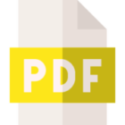Ciprian-Beniamin Benea – University of Oradea, Universitatii no.1, Oradea, Romania
Adina Sacara Onita – University of Oradea, Universitatii no.1, Oradea, Romania
Andra-Teodora Porumb – University of Oradea, Universitatii no.1, Oradea, Romania
Keywords: Access to water;
Colonial inheritance;
Dams;
Population;
Water stress
Abstract: This paper aims to bring to the European audience the importance of connections between water and climate change on the African continent; even though this continent could be regarded as somewhere in the southern hemisphere, the globalized world we already live in proves the contrary. In fact, it is very close to us. As population dynamics will put higher pressures on available natural resources in Africa, the migratory pressure from that continent, which already is felt on the European continent, not only could bring social or political upheavals there, but it could complicate the socio-economic equilibrium closer to us. Furthermore, in the context of climate change, there are needed some measures to be taken in order to prevent such a scenario from taking place. And among other key resources, the most important, which is related to everything, is water; the way it would be used in Africa and how would it be distributed could make a difference.


9th International Scientific ERAZ Conference – ERAZ 2023 – Conference Proceedings: KNOWLEDGE BASED SUSTAINABLE DEVELOPMENT, hybrid – online, virtually and in person, Prague, Czech Republic, June 1, 2023
ERAZ Conference Proceedings published by: Association of Economists and Managers of the Balkans – Belgrade, Serbia
ERAZ conference partners: Faculty of Logistics, University of Maribor, Maribor (Slovenia); University of National and World Economy – UNWE, Sofia (Bulgaria); Center for Political Research and Documentation (KEPET), Research Laboratory of the Department of Political Science of University of Crete (Greece); Institute of Public Finance – Zagreb (Croatia); Faculty of Tourism and Hospitality Ohrid, University of St. Kliment Ohridski from Bitola (North Macedonia)
ERAZ Conference 2023 Conference Proceedings: ISBN 978-86-80194-72-1, ISSN 2683-5568, DOI: https://doi.org/10.31410/ERAZ.2023
Creative Commons Non Commercial CC BY-NC: This article is distributed under the terms of the Creative Commons Attribution-Non-Commercial 4.0 License (https://creativecommons.org/licenses/by-nc/4.0/) which permits non-commercial use, reproduction and distribution of the work without further permission.
Suggested citation
Benea, C. B., Onita, A. S., & Porumb, A. T. (2023). Africa, Water and Climate Change. In V. Bevanda (Ed.), ERAZ Conference – Knowlegde Based Sustainable Development: Vol 9. Conference Proceedings (pp. 455-462). Association of Economists and Managers of the Balkans. https://doi.org/10.31410/ERAZ.2023.455
References
Adams, E. A., Sambu, D., & Smiley, S. (2019). Urban Water Supply in Sub-Saharan Africa: Historical and Emerging Policies and Institutional Arrangements. International Journal of Water Resources Development 35(2), 240-263.
Bayliss, K., & Tukai, R. (2011). Services and Supply Chains: The Role of the Domestic Private Sector in Water Service Delivery in Tanzania. New York, UNDP.
Bender, M. V. (2021). Water for Bongo: Creative Adaptation, Resilience & Dar es Salaam Water Supply. Daedalus, 150(4), 48-63.
Davies, B. R., Beilfuss, R., & Thoms, M. C. (2000). Cahora Bassa Retrospective, 1974-1997: Effects of Flow Regulation on the Lower Zambezi River, Verhandlungen 27 (4), 1-9.
Derr, J. L. (2021). The Dammed Body: Thinking Historically about Water Security & Public Health. Daedalus, 150(4), 143-157.
Isaacman, A., & Musemwa, M. (2021). Water Security in Africa in the Age of Global Climate Change. Daedalus, 150(4), 7-26.
King, J., & Brown, K. (2021). Africa’s Living Rivers: Managing for Sustainability. Daedalus, 150(4), 240-259.
Livingston, J. (2021). Water Scarcity & Health in Urban Africa. Daedalus, 150(4), 85-101.
McCarthy, J. (2020). Why Climate Change and Poverty Are Inextricably Linked, Global Citizen, https://www.globalcitizen.org/en/content/climate-change-is-connected-to-poverty/ (July 5, 2023).
Musemwa, M. (2021). Urban Struggles over Water Scarcity in Harare. Daedalus, 150(4), 27-47.
Swain, A. (1997). Ethiopia, the Sudan, and Egypt: The Nile River Dispute. The Journal of Modern African Studies, 35(4), 675-694.
Swyngedouw, E. (2004). Social Power and the Urbanization of Water: Flows of Power. Oxford, Oxford University Press.
Tickner, D., Opperman, J. J., & Abell, R. (2020). Bending the Curve of Global Freshwater Biodiversity Loss: An Emergency Recovery Plan. BioScience, 70(4), 330-342.
U.N.D.E.S.A. (2022). World Population Prospects 2022. Summary of Results. New York, United Nations.
U.N.E.P. (2010). Africa Water Atlas. Nairobi, United Nations Environment Programme, Division of Early Warning and Assessment.
Verhoeven, H. (2021a). The Grand Ethiopian Renaissance Dam: Africa’s Water Tower, Environmental Justice & Infrastructural Power. Daedalus, 150(4), 159-180.
Verhoeven, H. (2021b). Climate and Water in a Changing Africa: Uncertainty, Adaptation & and Social Construction of Fragile Environments. Daedalus, 150(4), 260-276.
Yamba, F. D., Walimwipi, H., Jain, S., & Zhou, P. (2011). Climate Change/Variability Implications on Hydroelectricity Generation in the Zambezi River Basin. Mitigations and Adaptation Strategies for Global Change 16(6), 617-628.
Zdankus, N., Vaikasas, S., & Sabas, S. (2008). Impact of a Hydropower Plant on the Downstream Reach of a River, Journal of Environmental Engineering and Landscape Management, 16(3), 128-134.
